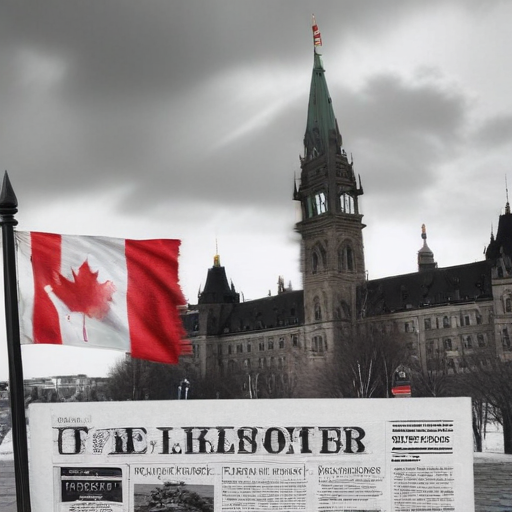Canada’s Finance Minister Chrystia Freeland has announced her resignation, highlighting significant differences with Prime Minister Justin Trudeau regarding the country’s approaching economic challenges. Her departure comes just hours before she was set to deliver an important fiscal update to Parliament and follows Trudeau’s indication that he no longer wished for her to remain his primary economic advisor. In her resignation letter, Freeland pointed out that she and Trudeau had fundamentally disagreed on how to navigate the serious threats posed by Donald Trump’s “aggressive economic nationalism,” particularly in light of Trump’s proposed tariffs on Canadian imports.
Freeland’s resignation could place Trudeau’s minority government under further strain, especially as he faces increasing pressure to resign amid dropping approval ratings. Currently, some Liberal MPs are publicly voicing their desire for Trudeau to step down, calling the dismissal of Freeland—who has been a trusted ally—”not a trustworthy move.”
In a swift response, Dominic LeBlanc was appointed as Freeland’s successor. LeBlanc, a close associate of Trudeau, is anticipated to maintain loyalty to the Prime Minister during this tumultuous time.
Freeland noted in her letter the urgent need for Canada to protect its economy, emphasizing the requirement to avoid politically expedient measures that could worsen the nation’s growing deficit, which was recently reported at C$60 billion—substantially above Freeland’s earlier target of C$40 billion. She also expressed serious concern about two proposed policies aimed at alleviating the cost-of-living challenges facing Canadians: direct payments to eligible citizens and a temporary tax holiday for essential goods.
The political atmosphere is tense, with opposition leader Pierre Poilievre calling for a federal election, stating that the situation is unsustainable. Meanwhile, the government moves forward with the tax holiday despite challenges from other parties regarding the broader support measures.
Despite the apparent challenges facing the Canadian government, this moment could provide an opportunity for new leadership with LeBlanc stepping in as Finance Minister. His appointment may introduce fresh perspectives in dealing with complex economic issues. Furthermore, as the financial landscape evolves, the government and its leaders have an opportunity to refine their strategies to better address public concerns and build a more financially stable future for Canadians.
This situation underscores the importance of adaptability and collaboration in governance, especially in times of economic uncertainty. With the right approaches, Canada can navigate these turbulent waters and emerge resilient.
